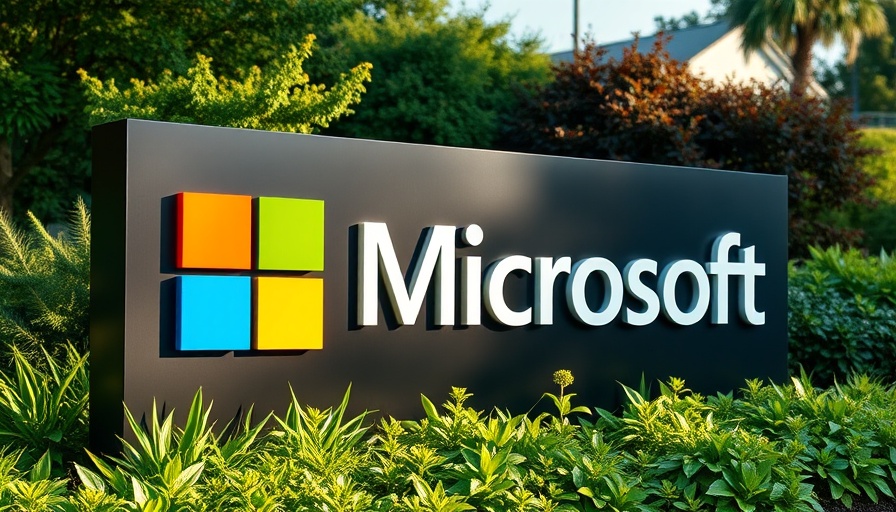
Microsoft's Bold Move into AI Reasoning
In an ambitious shift, Microsoft is set to develop its own AI reasoning models, laying the groundwork to compete directly with its longtime collaborator, OpenAI. This initiative signifies not just a technological evolution but a strategic pivot aimed at reducing its dependency on OpenAI’s technologies. Reports suggest that the new models, known as MAI, might be integrated into their flagship AI product, Microsoft 365 Copilot, with potential release as an application programming interface (API) later this year.
The Evolution of Microsoft’s AI Strategy
Over recent years, Microsoft has significantly invested in AI, pouring approximately $14 billion into OpenAI to bolster their early leadership in the tech space. However, as competition intensifies with other AI players like Anthropic and Meta, the company has decided to enhance its portfolio by creating in-house models. According to industry insiders, Microsoft is even testing alternatives from companies such as DeepSeek and xAI, paralleling its efforts to establish the MAI models.
Understanding MAI: Microsoft’s Answer to OpenAI
The MAI models, which Microsoft claims perform nearly as well as their OpenAI and Anthropic counterparts on industry-standard benchmarks, are designed specifically to elevate their existing product offerings. Mustafa Suleyman, a key figure heading this initiative, noted that these models utilize advanced chain-of-thought reasoning techniques. This capability allows them to generate answers through a step-by-step reasoning process—potentially transforming how users interact with AI within the Copilot ecosystem.
Strategic Alliances and Competitive Landscape
Microsoft’s drive to cultivate its AI reasoning models is rooted in its need to hedge against unpredictability in partnerships. OpenAI’s reluctance to share detailed insights about their technologies has reportedly stoked tensions, pushing Microsoft to diversify its AI resources. By fortifying its in-house capabilities, Microsoft not only enhances competitive advantage but also safeguards its leadership position in the rapidly evolving AI market.
Future Predictions: A Growing AI Marketplace
The emergence of Microsoft's MAI models is expected to alter the landscape of AI integration across industries. As the technology becomes accessible via API, developers are likely to leverage these models in their applications, fostering an expansive growth in productive AI tools. This aligns with tech trends indicating a surge in demand for customized AI solutions that address specific business needs, creating opportunities for innovation and partnership.
Broader Implications for the Tech Industry
As Microsoft continues its journey towards in-house AI development, it raises essential questions about the future of collaborations in the tech industry. Will established partnerships, such as that with OpenAI, still hold value, or will companies seek to develop wholly independent infrastructures? The answer could shape not only Microsoft's strategy but the entire competitive landscape as industry giants and startups alike vie for a piece of the lucrative AI pie.
To stay informed about the latest developments in AI technologies and strategies that could impact your organization, consider following the innovations coming from Microsoft and its competitors.
 Add Row
Add Row  Add
Add 




 Add Row
Add Row  Add
Add 

Write A Comment